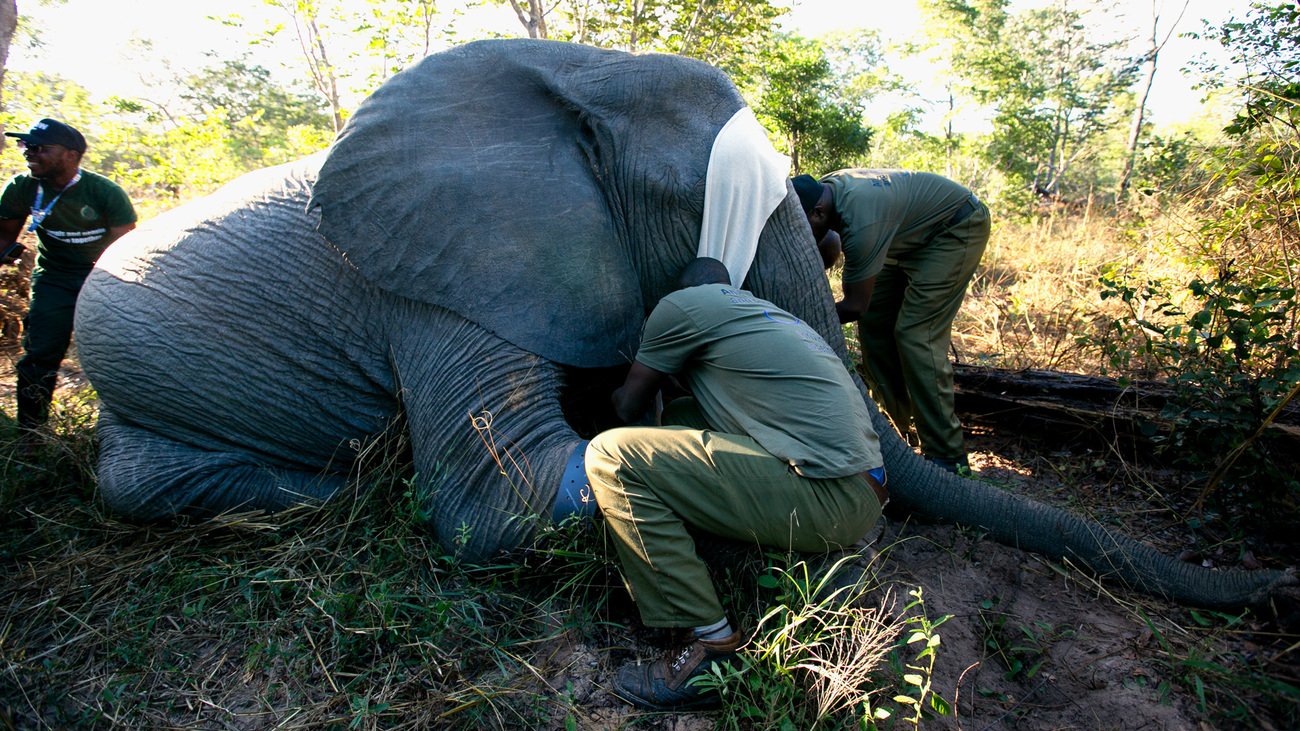Zimbabwe—tracking elephants with technology
Zimbabwe—tracking elephants with technology

(Harare, 30 April 2025) – Scientists have fitted GPS-enabled satellite collars to eight African savannah elephants roaming close to Zimbabwe’s Hwange National Park.
Linked to “Earth Ranger” enabled technology the elephants will now be monitored around-the-clock as they traverse heavily populated surrounding community lands, providing rangers with the real-time data needed to prevent and respond to incidents of human-elephant conflict.
The ten-day exercise, a joint operation between IFAW and Zimbabwe Parks and Wildlife Management Authority (ZimParks), supports the efforts by scientists and conservationists in Zimbabwe to use cutting-edge technologies to search and generate data to mitigate human-wildlife conflict.
The recent collaring operation brings to 16, the number of elephants collared by IFAW and ZimParks since early 2024. This enables conservationists to monitor the interactions of up to 200 elephants, given each collared elephant typically belongs to a herd of around 10 individuals.
Data generated will be critical for IFAW and ZimParks' efforts to reduce conflicts between people and elephants in the human-dominated landscape on the edge of the 14,600 km² Hwange National Park, and the wider Hwange-Matetsi-Zambezi landscape. The information will also be valuable to conservationists, policymakers, and the community in understanding elephant behaviour and how they use their environment.
Scientists are also keen to investigate how constructing the Gwayi-Shangani Dam (when completed, Zimbabwe’s third largest dam), located less than 20 kilometres from the park, will affect elephant movements. Some experts expect the reservoir will influence how these large herbivores navigate and utilise the landscape.
Phillip Kuvawoga, Senior Director of Conservation Programs at IFAW, said, “The Hwange-Matetsi-Zambezi landscape is key part of the landscape for IFAW’s Room to Roam initiative, which aims to reconnect fragmented habitats and allow wildlife to migrate along their ancient routes. With the information set to be generated from the GPS collars, we can now focus our efforts on protecting areas where elephants need to be and developing informed interventions to guide human-wildlife mitigation interventions.”
“Together with our partner, IFAW, we strongly believe that conservation should be grounded in solid science. We are confident that this initiative will ensure that conservation decisions are informed by robust scientific data, allowing for more effective protection strategies and fostering a harmonious coexistence between people and nature,” says ZimParks Director General Professor Edson Gandiwa.
ENDS
Press Contacts:
Luckmore Safuli
Communications Officer, Southern Africa
m: +263 77 252 7736
e: lsafuli@ifaw.org
Christina Pretorius
Director, Communications Africa
m: +27 82 330 2558 e: cpretorius@ifaw.org
Related content
every problem has a solution, every solution needs support.
The problems we face are urgent, complicated, and resistant to change. Real solutions demand creativity, hard work, and involvement from people like you.